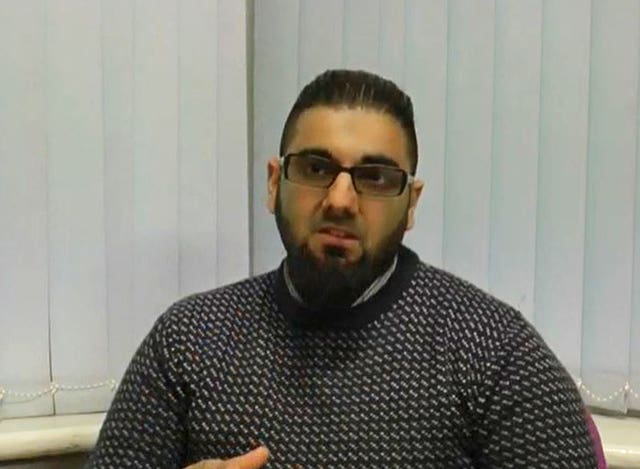Police ‘daunted’ by taking on terror offenders, Fishmongers’ Hall inquest told
A Staffordshire police officer tasked with monitoring terrorist offenders – including the Fishmongers’ Hall attacker, Usman Khan, from Stafford – said he felt “daunted” by the decision to hand responsibility to his team, an inquest jury heard.

Sergeant Calum Forsyth said his team of four Prevent officers, whose job was to steer people away from terrorist activity, were told in 2015 that they would begin having a role in managing convicted terrorist offenders in the community – something previously done by the much larger team at West Midlands Police.
Their first offender, Mohibur Rahman, was initially convicted alongside Khan in 2012 for plotting a jihadi training camp in Pakistan.
Khan was also managed by Sgt Forsyth’s team following his release from prison in December 2018, and would go on to kill two people at a prisoner education event in central London some 11 months later. At the time he had been living in Wolverhampton Road, Stafford.

Giving evidence to the inquests of Khan’s victims – Cambridge graduates Jack Merritt, 25, and Saskia Jones, 23 – Sgt Forsyth said he was not sure his team was best equipped to take on the management of convicted terrorists.
Asked how he felt at the time of the decision, Sgt Forsyth said: “Daunted, a little bit.
“He (Rahman) was the first one for Staffordshire.
More:
“Looking at the structure West Midlands Police had at the time, compared to myself and three police officers, it was hard to replicate.”
Sgt Forsyth added: “I knew this was one of a number (of terror offenders in the area) due to come out (of prison), that would then in my view leave us vulnerable to doing our job correctly.
“It was not so much about: ‘I’m not trained’, it was our capacity to take this on as a function.”

Sgt Forsyth said he met Khan several times following his release from HMP Whitemoor, including at his approved hostel and in cafes around Stafford where he settled.
It was during one such visit, in March 2019, that Khan appeared determined to impress upon Sgt Forsyth how much he had changed, the inquests at City of London’s Guildhall heard.
Sgt Forsyth said: “He (Khan) repeated his assertion he had no intention to return to his previous behaviour and he was a different person from when he was 19-years-old, he said he wanted to become some sort of de-radicalisation mentor.”
The officer told the inquests he felt Khan was “trying to run before he could walk”, and that it was too soon to be considering this.
Sgt Forsyth said: “I didn’t blindly accept what he was saying.
“My belief was if he hadn’t changed – if it was an act – you’re either in it for the long game or you’ll catch yourself out.”
The inquests previously heard evidence of how Khan repeatedly claimed he had dispensed with his previous terrorist ways – including telling his former prison counter-terrorism governor he had “learnt that violence isn’t the path” during a chance meeting on November 29 2019, shortly before the Fishmongers’ Hall atrocity.
Khan strapped knives to his hands and stabbed five people – Mr Merritt and Ms Jones fatally – before being chased on to nearby London Bridge where he was shot by armed police.
Originally from Stoke, he was living at flats on Wolverhampton Road, Stafford, before the attack. He was released from prison on licence in December 2018, halfway through a 16-year prison sentence, after he was convicted of terror offences in February 2012.
The inquests continue.





